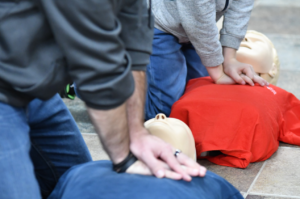Christian Gervais is the Founding President of Groupe TRAK / Rapide Investigation Canada. He is one of the country’s pioneers in surveillance with more than 25,000 cases successfully processed under his belt. In this interview, he explains what a surveillance operation consists of down to its technical and legal aspects, as well as the various needs that this specialized service can meet.
Of what do Groupe TRAK / Rapide Investigation Canada’s surveillance service consist? What does it involve?
The first thing we do after the client submits an initial request is to determine the specific purpose of the request as well as the parameters and scale of our intervention to respect the legal framework within which we must work.
Then, we perform a host of web and social media searches. We call this step the preliminary search, which is a step that allows us to collect several pieces of information on the person to be investigated and can confirm information up to and including motives.
Surveillance
Two types of surveillance exist: pre-surveillance, or “static surveillance,” and full surveillance. In some cases, we can start with pre-surveillance using a vehicle and an agent in a static way, which helps prepare the ground for full surveillance. Pre-surveillance is used to determine the location, travel frequency and significant movements at a given address. It also makes it possible for us to determine if a full surveillance operation is required and help plan it more efficiently.
Full surveillance generally involves two investigators, i.e. one per vehicle. In some cases, we allocate up to five investigators if the situation requires it. Doing so provides us with greater mobility on foot or by public transport, for instance. Investigators are trained to use techniques recognized by police services to follow a person without being seen.
Surveillance often lasts several days. After it is done, we send the client a written report that includes photos and videos. The evidence gathered is admissible in court and can be leveraged to meet a client’s specific needs or aims.
What is the legal framework to respect when performing surveillance?
Before we accept a surveillance request, the applicant must have done their homework and be aware of the limitations and implications of such an investigation. A company must have reasonable doubt or a specific reason to trigger an investigation.
When we mean by “doing their homework” is gathering as much information as possible to put our investigators on the right track. For example, applicants should ideally have an idea of the vehicle the person uses, their habits, conditions, limitations, approximate schedule, and so forth. Our preliminary search is often paired with a pre-surveillance can help determine some of these elements.
During the surveillance itself, we must be as unobtrusive as possible. Moreover, we are only allowed to film what is visible from the street and in public places. We cannot film a person through the window of their residence, for example, as this is considered an invasion of privacy. Also, 24-hour surveillance over many weeks could be deemed intrusive. An investigative strategy should be used wherein the means of investigation are as non-intrusive as possible and can be increased depending on the information collected and the nature of the evidence gathered.
With over 25,000 surveillance cases processed with no complaints filed, it’s fair to say we always respect our profession’s ethical framework.
What is the typical profile of a good surveillance investigator?
Without a doubt, Groupe TRAK / Rapide Investigation stands out from the competition because we hire only professional, experienced and well-trained investigators who are seasoned trackers.
Some of the qualities we seek in a good surveillance investigator are discipline, rigour in applying investigation techniques, a keen sense of observation, patience, attention to detail, respect for the highway safety code, responsible driving, self-control when faced with challenging situations, teamwork and initiative. But above all, discretion and efficiency are the field’s two watchwords.
Who typically calls on Groupe TRAK /Rapide Investigation’s surveillance services?
Our client list is long and includes many companies, government agencies, municipalities, banks, law firms, insurance companies, international correspondents and many more.
We have clients beyond the local market; we also receive requests at the regional, national and international levels. It makes sense for a country to use our services if they have reason to believe the person they are looking for is living in the area, as they incur fewer costs. The same holds true for our cases abroad.
What are the top reasons clients request surveillance services?
When it comes to private investigators, there is a popular myth that we spend our days dealing with adultery cases. In reality, this type of request barely exceeds 5% of all our surveillance requests. We mainly receive requests regarding short- and long-term disability (e.g., CNESST), theft, drug use or trafficking in companies, fraud and third-party protection.
What happens after a “conclusive” surveillance case?
This question covers a wide range of possibilities, but everything always comes back to the purpose of the client’s request. After the surveillance is done, some cases are settled out of court or in court based on the burden of proof gathered during our investigation. In a unionized setting, a union may decide not to represent a worker after reviewing the evidence.
In other cases, the information gathered will serve only to back up a decision regarding dismissal or divorce or resolve a personal dispute. In short, conclusions vary a great deal.
For more information regarding surveillance services, call Groupe TRAK / Rapide Investigation Canada at 1-877-619-0099.




